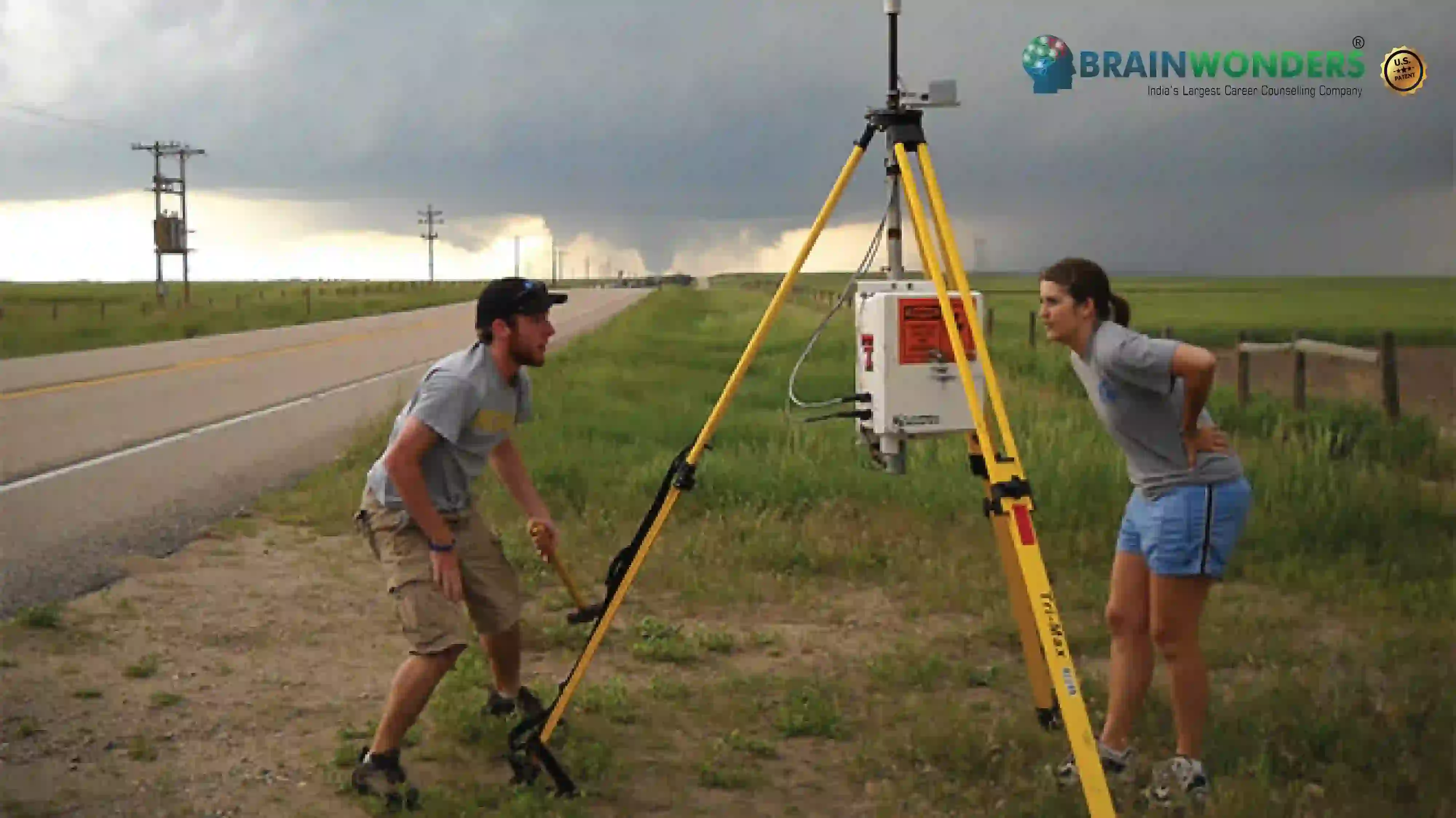How to become an Environment Protection Technician
Overview, Courses, Exam, Colleges, Pathways, Salary

Overview
Who is Environment Protection Technician ?
Environmental Protection Technicians, often known as EPTs, are public health experts who monitor the environment to investigate pollution and contamination sources to safeguard public health from its consequences. Environmental protection technicians are in charge of protecting property, people, waterways, and animals from potentially dangerous circumstances. They aid in numerous environmental programs, such as air quality checks, test water samples, and hazardous waste disposal.
Typical day at work
What does Environment Protection Technician do?
- Inspect public places and organizations to certify no hazards with respect to environment, health, or safety, such as radiations, high noise levels, etc.
- Create and maintain pollution level monitoring equipment, such as remote sensors that measure smokestack emissions
- Clearly mark, register, and confirm sample quality transported to the laboratory
- Use microscopes to assess and analyze samples for incidence of pollutants or other contaminants
- Comply with pollution prevention regulations
- Communicate findings of environmental studies to other professionals
- Conduct site inspections to approve a habitat or to determine environmental degradation or need for restoration
- Manage and deliver technical guidance, training, or assistance on environmental planning, restoration planning or strategies to energy engineers, biologists, geologists, or other professionals
- Study environmental impact to inspect the ecological effects of pollutants, disease, human activities, nature, and climate change
- Conduct feasibility and cost-benefit studies
- Assess existing designs in environmental remediation
- Inspect active remediation sites and make natural resource management plans based on state and federal environmental regulatory requirements
- Write technical proposals and prepare and give presentations
- Collect and compile environmental data from air, soil, water, food, and other samples for scientific analysis
- Provide information and assistance to government officials, businesses, and the public on possible environmental hazards and health risks
- Review current scientific literature to stay well-informed of developments in the field
- Record and store observations, samples and specimens in the lab and in fieldwork
- Create and enforce environmental pollution or radiation monitoring programs
- Investigate and collect samples about hazardous conditions, spills, or disease or food poisoning outbreaks
- Gather samples of gases, soils, water, industrial wastewater, or asbestos products to conduct tests on pollutant levels to recognize the cause of pollution
- Track pollution control systems to warrant proper operation and compliance with state and federal regulations
- Check public-service sanitary conditions
- Use different microscopes to inspect and analyze material for the presence and concentration of contaminants, such as asbestos
- Create or enforce plans for recycling sites or hazardous waste streams’ programs
- Conduct statistical analysis of environmental data
- Evaluate potential environmental impacts of improvements in manufacturing processes and propose measures to minimize adverse impacts
- Set up equipment or stations for tracking and collecting pollutants from sites such as smoke stacks, processing plants, or mechanical equipment
- Make suggestions for the regulation or removal of dangerous workplaces or public spaces
- Distribute licenses, plans to close, or plans to clean up
- Manage files for hazardous waste databases, chemical use, records of personnel, or equipment locations diagrams
- Use chemical and mathematical formulas to measure the amount of pollutant in samples or to quantify air emissions or gas flow in manufacturing processes.
- Supervise tasks to laboratory workers
- Weigh, analyze, or quantify sample particles collected, such as lead, coal dust, or rock, to assess pollutant concentrations.
- Initiate closure or fining procedures for businesses that violate environmental, health, or safety regulations.
- Formulate testing and analysis samples or photomicrographs
- Specify the amounts and types of chemicals to be used to kill unhealthy organisms or eliminate impurities from the purification systems.
- Design testing procedures.
Abilities and Aptitude needed
What are the skills, abilities & aptitude needed to become Environment Protection Technician?
- Foremost, Environmental Science and Protection Technicians must have sensitivity and dire commitment to environmental preservation, protection, and repercussions of environmental degradation and pollution. In addition, they must have a broad understanding of local, national and global environmental issues. They should also be interested in geography, geology, botany, chemistry, and zoology.
- Along with knowing how to handle and set up complicated laboratory technology, technicians should respect precision and be at ease dealing with equipment that requires constant monitoring.
- One should be capable of understanding highly technical material such as raw data, scientific literature and must have a comprehensive hold on mathematical concepts, statistics, and formulas that they regularly use in their work.
- Technicians are frequently responsible for combing written rules and other documents to create client suggestions; therefore, research skills are crucial.
- They tend to be investigative, intellectual, reflective, and inquisitive individuals. In addition, they are inquisitive, systematic, scientific, logical, rational, and analytical in nature.
- They must have physical stamina because they may be on their feet for lengthy periods of time when collecting samples and at times. They should also be adaptable enough to function in a variety of settings.
- They should be able to convey their research procedures and conclusions, both verbally effectively and in writing. In addition, they usually work in a research team. Thus, interpersonal and project management skills are necessary.
- Technicians need to have observation skills and be detail-oriented to conduct and monitor scientific experiments and analyses accurately and accurately. This also necessitates environmentalists' tenacity in working for a cause regardless of monetary rewards.
- They must be able to think critically and solve issues to solve complicated environmental challenges, and draw inferences from experimental data using solid reasoning and judgement.
- Lastly, they must be able to manage time and prioritise projects while preserving job quality properly.
Pathways
How to become an Environment Protection Technician?
Entrance Exam
Entrance Exam for Environment Protection Technician ?
Courses
Which course I can pursue?
Best Colleges
Which are the best colleges to attend to become an Environment Protection Technician?
Industries
Which Industries are open for Environment Protection Technician?
internship
Are there internships available for Environment Protection Technician?
Career outlook
What does the future look like for Environment Protection Technician?
Environmental Protection Technicians work full-time in offices, laboratories, and on-field, under the supervision of environmental scientists and specialists, who direct the technicians’ work and evaluate their results. In addition, they often work in teams with scientists, geoscientists, hydrologists, engineers, and technicians in other fields to work on complex problems related to environmental degradation, public health, manage the cleanup of contaminated soils and groundwater.
In private consulting firms, environmental restoration planners help clients monitor and manage the environment; comply with regulations; develop cleanup plans for contaminated sites; suggest ways to reduce, control, or eliminate pollution; and conduct feasibility studies for new construction projects.
In testing laboratories, technicians gather and monitor samples and conduct tests directly associated with the environment and determine how it impacts human health. Fieldwork offers a variety of settings in all types of weather. They spend most of their time on their feet, setting up monitoring or testing equipment, which can be physically demanding. In addition, they may have to travel to meet with clients, visit sites, or perform fieldwork, which may require additional or irregular working hours.



